Philanthropic Planning Insights
The Advisor's Role in Helping Clients with Meaningful Life Transitions

In general, life is composed of three stages: 1) learn – to thrive and get a good job; 2) earn – a period of building wealth to take care of family and needs; and 3) retire. The midlife stage, generally between 35 and 75 years old, or the high potential earning years and into early retirement, is where most charitable activities and estate and financial planning tend to take place. This period is marked by constant change and transition, including career and relationship changes, taking care of parents and children, sometimes simultaneously, and personal health. A heightened sense of depression, stress, loneliness, and being overwhelmed are common words to describe this time, also known as the “midlife crisis.”
Advisors are adept at the technical planning required to manage these transitions: organizing finances, completing estate plans, and protecting assets. Yet, very little support is available to those managing the confluence of these events on the behavioral perspective. In addition, Stanford University’s Center on Longevity is reimagining what a century of life means in a new project, “A New Map of Life.” In this article, I outline several ways that advisors can support clients or donors experiencing transitions.
1. Self-awareness and acceptance allow clients to manage and master their growth through various life transitions.
You can help clients understand what it means to live a longer life and obtain the skills needed to manage their psychological well-being and development. For example, some wealth management firms are beginning to host seminars for clients around the science of longevity, explaining physical, emotional, and psychological changes. Other advisors introduce researchers from organizations such as the Buck Institute on Aging to share new scientific research programs. For some advisors, it is helping clients lean into or explore their spirituality. By demystifying life transitions and providing your clients with the tools to navigate uncertainty, your clients will gain greater autonomy and control of their life.
2. Purpose is essential for happiness and longevity, especially as one transitions from the purpose of work and wealth creation.
Chip Conley, the founder of Modern Elder Academy, shares that increased purpose has shown to positively affect happiness and life expectancy. Generally, clients are entering a phase in which they are questioning their view of life and triggering a search for meaning. Bob Buford, author of the book “Halftime,” speaks of the journey from “success to significance.” You can help your clients uncover their greater purpose, whether it is a more profound sense of where they are or a “reboot” to where they wish to be. Often, a client’s purpose involves contributing to society, leaving a mark, or leaving a legacy. This is a good time to reexamine, with the client, organizations and causes they support, their philanthropic impulses, what stirs their soul, what they would like to make right, and how they can make a greater social impact. It is important to connect the earlier accomplishments to their renewed purpose and the future as it is a regenerative process.
3. New networks are sometimes needed for renewed purpose and personal connection, especially when in transition.
Advisors can help clients identify their support team of family, friends, and community. Warm and trusting interpersonal relationships can have a positive effect on life expectancy.
For those entering retirement, a new network, or being with others entering the same phase in life, may provide the support and freedom to explore and even shed an identity they wish to leave behind. Advisors with a similar group of clients in transition may consider forming informal small, private networks or study groups, bringing in experts such as life coaches, intergenerational communication specialists, or health experts. These groups may provide learning and community building opportunities.
4. Embracing and incorporating lifelong learning and curiosity.
An increasing number of spiritual and educational institutions offer lifelong learning programs. Yet few of them address the needs of those in transitions as they focus on human capital development and not on human-centered development. Exceptions exist, including Harvard’s Advanced Leadership Initiative and Stanford’s Distinguished Careers Institute, which provide programming for those transitioning to explore purpose, community, wellness, and intergenerational engagement.
At The American College of Financial Services, where I work, we are developing a program to support executives, small business owners, and others who are in transition. We saw an opportunity to serve those who wish to refresh, deepen, or more significantly repurpose and transition their energies in an accessible and flexible program that meets participants where they are. This approach ensures a path grounded in family, values, legacy, and what matters most. In addition, the program supports the participants in the practice of social impact, with new ideas, new tools, and new friends.
According to the 2020 Census, there are approximately 73 million Baby Boomers. By 2030, all Baby Boomers will be age 65 or older. As a result, we can better serve advisors by recognizing and understanding the needs of clients who are struggling or need a little more support through transitions.
One of the keys to philanthropic success is proper financial planning. Through the three-course Chartered Advisor in Philanthropy® (CAP®) designation program, you will learn how to help philanthropies maximize their donations and resources. The CAP® is designed for experienced professionals in both the financial services and nonprofit sector, and gives you the power to do more with your career. Learn More.
Purpose School: Your Invitation to a Community for Growth and Impact

Over the past year and a half, people across the country and the world have come together in unprecedented ways to meet the challenges we face with innovative solutions that lay the groundwork for long-term, transformative change. I’m fortunate to work for an institution in the midst of many of the most important of these changes, and one whose faculty, staff, and network of supporters are dedicated to pushing them forward. That’s why I’m proud to announce the next step in our mission to promote lifelong learning and the benefit of society: Purpose School from The American College of Financial Services.
Purpose School is a new state-of-the-art social impact experience designed for those who wish to refresh, deepen, or more significantly repurpose their energies, and discover new ways to make a difference in their lives, and the lives of others.
The program offers the space and support to learn from experts, explore your own purpose, and connect with and enjoy others. Our conversations include innovations in philanthropy but also impact investing and social enterprise, along with deep dives into practice areas such as human-centered design. This is all tied together by our new PS 360 Notebook and activities, which help frame personal reflections throughout, and is capped with a personal passion project. Purpose School Fellows are entrepreneurs with a growth mindset looking to update their skills and join a special community of change-makers, mid-career professionals considering a focus on greater impact, and late-career leaders approaching or in a career transition, with more time and resources to devote to renewed purpose.
The Founders Class is a special opportunity and one especially well timed given the needs all around us. We’re excited about having a dynamic and inspired first class and I sincerely hope that you’ll consider joining as a Fellow.
It is time to match the challenges we face today with a new urgency and ambition for making a difference. That potential is what Purpose School is built for — to discover new possibilities, know-how, meaning and joy in giving back. I invite you to be a part of the Founders Class and my own journey for change.
I can’t wait to get to know the faces and hear the stories of our fellow purpose-driven individuals. Let’s work together to realize that new day and remind everyone, no matter where they may be, that we are, as always, “stronger together.”
Meet Our 2021 NextGen Financial Services Professional Award Recipients
In 2020, the COVID-19 pandemic put the world on its heels, but with the development of vaccines, the increase in remote working and learning, and other adaptations, some thought 2021 would be the year things went “back to normal.” The truth, however, was far more complex. The rise of COVID variants and changing political and social climates exacerbated by the virus have led to a “new normal” many are still trying to navigate.
Through it all, young professionals stepped into the breach and continued to grow their expertise in using technology and building relationships to overcome the challenges of the ongoing pandemic and shifting business landscape—especially in financial services. Those under 40 have played a critical role in helping the industry evolve and persevere when many vital sectors have struggled to hold on.
Get to know the next-gen professionals you should be watching in the coming year as we announce our 6th annual NextGen Financial Services Professional Award recipients!
Amie Agamata, CFP®, AIF®, RICP®, ChFC®, CLU®
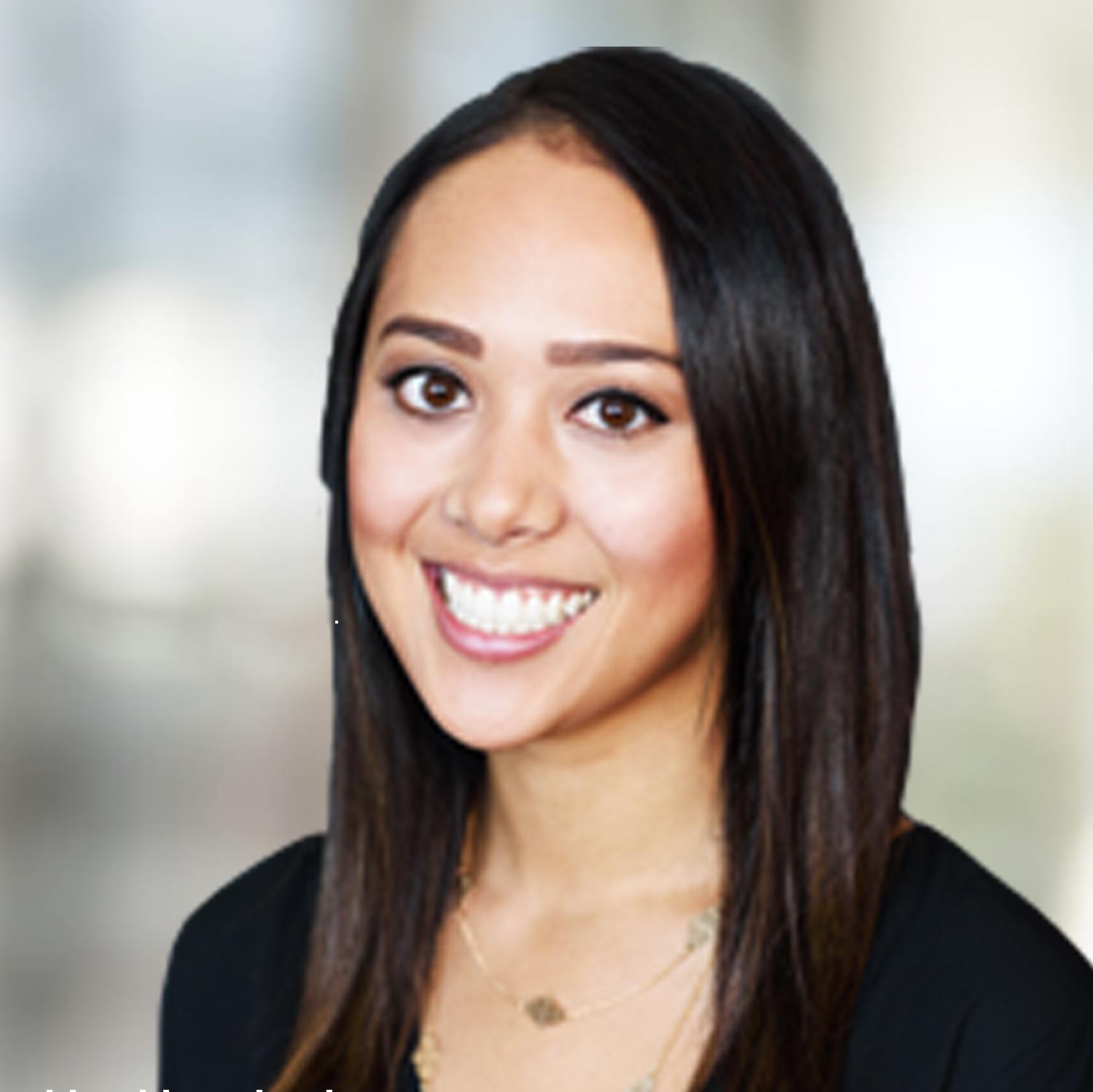
Amie Agamata is the Director of Investments & Planning for Leonard C. Wright’s team in San Diego, CA. She manages the team’s ERISA plan practice, investments, and financial planning process to ensure all recommendations are in the best interest of clients. “It’s a privilege to be acknowledged as a NextGen leader in our industry and I aspire to encourage anyone interested in or starting their career in financial services to invest in your education, because it does pay off in the long run,” she says. “No one can ever take it away from you, and it makes you a better servant to your clients.”
Agamata says her education through The American College of Financial Services has made a measurable difference in her life. “It’s sometimes harder to be taken seriously in the financial services industry not only as a younger person, but also as a woman in a male dominated field,” she says. “After furthering my education with The College, I’ve experienced higher respect from people in our industry and, more importantly, clients have better trust knowing they’re working with a highly educated individual. It’s key to stay open minded; I recognize the more I learn, the better I’ll be able to serve those in our community.” She also identifies her business partner, Leonard Wright, CPA, PFS, CFP®, as her most important mentor figure, even though they are decades separated in age. “COVID-19 changed him from a Baby Boomer into a Millennial,” she says. “He offered me the position of his right-hand associate when I was only 19 years old, and from that point on, he’s always taught me to achieve and demand exceptionalism in everything I do. I’m blessed to work with someone who shares the same core values as me and truly has my best interest at heart.”
Five Things You Didn’t Know About Amie
Favorite Hobby: “I love traveling and seeing live music or…traveling to see live music! There’s just something unexplainable about experiencing a new place. You learn a lot about yourself when you’re in unfamiliar surroundings. Live music gives you a greater appreciation of the artists and I love the notion that it brings together so many people with different backgrounds and views to enjoy the performance as one.”
Favorite Book: Where the Crawdads Sing by Delia Owens—“It’s a coming-of-age story mixed with a murder mystery that has an unexpected ending. I know I’d enjoy reading again because I’ll learn something different.”
Last Meal: Chicken strips and French fries with a side of ranch—“A classic millennial meal growing up!”
Favorite Vacation: “I backpacked in Thailand for a month with eight of my girlfriends after graduating in 2015. It was an adventure of a lifetime and an experience that we’ll always share and never forget.”
Coffee or Tea: “A hot chai tea latte with oat milk always makes my day a little brighter.”
LeTian Dong, CFP®, RICP®, ChFC®
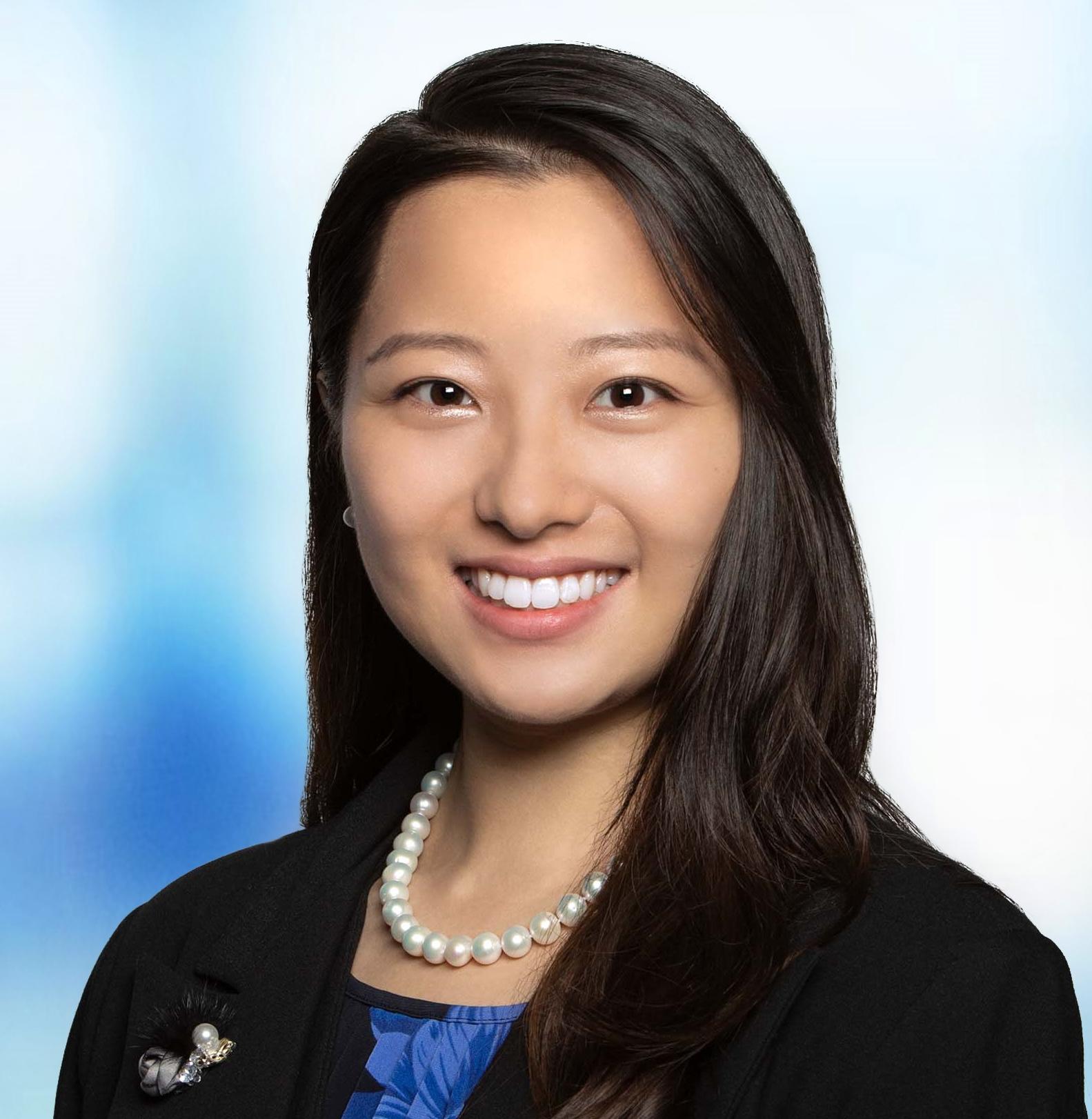
LeTian Dong is Chief of Staff, VP of Planning, and co-founder of a boutique retirement income and distribution planning practice with partner Tom Morris, MBA, CFP®, with offices in Long Island, NY and Durham, NC. She began her financial planning career upon graduation from the University of North Carolina at Chapel Hill in 2013, and as a retirement income specialist, she helps clients design strategies that exceed their goals and empower them to live joyfully and confidently.
Dong says the greatest challenge of the COVID-19 pandemic is also an old one: “The number of hours in the day. We held four times as many meetings in 2020 as we did the year prior, with the same team. The sheer amount of work was overwhelming,” she says. “I feel guilty saying we did very well helping clients when so many people were hurting. There were so many starfish stranded on the beach, but we helped as many as we could by going as fast as we could. Our team had to revamp some of our processes to deal with the speed.” She also says she has a passion for mentoring young planning professionals, and her goal is to lead future financial professionals in creating innovative strategies to engage with their communities in this rapidly changing global environment. “Getting established in this industry is challenging, especially for young professionals who may not have as much experience or technical skill set,” she says. “We need to dedicate more resources to helping young advisors build their practices.”
Five Things You Didn’t Know About LeTian
Favorite Hobby: “Dance, especially ballet, jazz, hip-hop, and urban; reading fiction in Chinese and English; and tennis.”
Favorite Quote: “…The credit belongs to the [wo]man…in the arena...” from Theodore Roosevelt’s “Citizenship in a Republic” speech.
Coffee or Tea: “Neither – I generate my own caffeine, so water is all I need!”
Spirit Animal: “The nine-tailed fox. As legend has it, the magical nine-tailed fox earns each tail by being of service to others and granting their wishes. The final tail is awarded in the form of a kind stranger’s wish for her.”
Next Designation: Wealth Management Certified Professional® (WMCP®)
Shellie Haluska, CFP®, CLU®, ChFC®, AAMS®
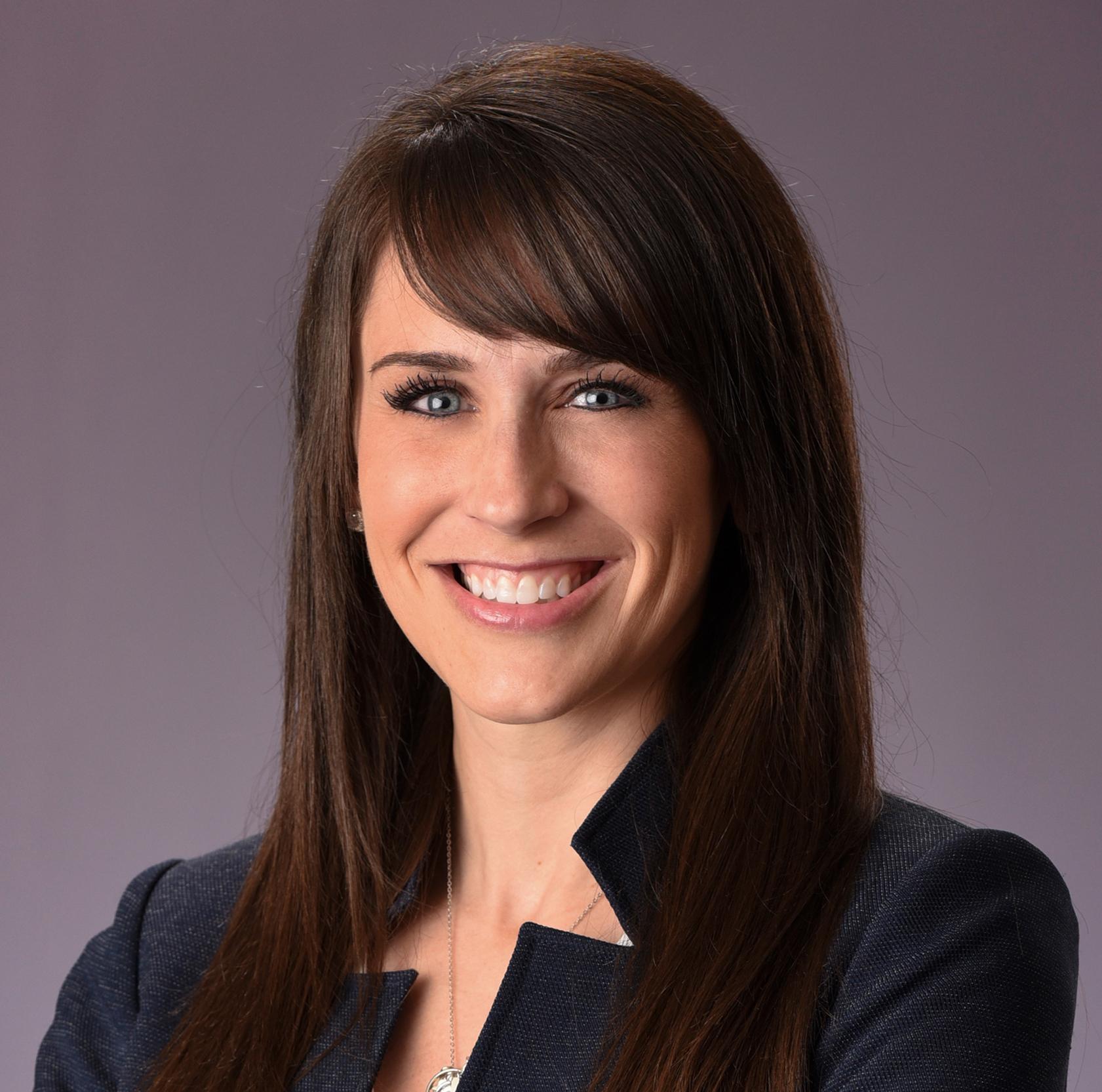
Shellie Haulska is a financial advisor based in Carroll, IA. She attended Iowa State University (ISU) to earn a bachelor's degree in accounting in 2009 and graduated summa cum laude, before getting her master's degree in 2010. During college, she also played on the ISU women's basketball team before returning to her roots in Carroll. She describes herself as a hometown girl who wants to make a lasting positive impact in her home community. She regularly partners with clients during times of transition, such as retirement or receiving an inheritance, and many of her clients are multigenerational families faced with advanced wealth transfer considerations. She and her husband, Sean, have three daughters, and she serves in a variety of volunteer roles.
Haluska says families and clients need financial advice more than ever during the COVID pandemic. “There are so many families out there that are underserved or not served at all,” she says. “We need a large number of truly dedicated professionals in this industry that are intentional about fine tuning their craft and helping the vast numbers of families out there that need better, deeper advice and service.” While she was sad to see others hurt and suffering in their personal lives and did what she could to help, Haluska says the pandemic also offered her a personal opportunity. “The world shutting down gave me the gift of time, and I tried to use that time wisely by being present at home with family, spending time learning and growing personally and professionally instead of traveling, and being more intentional about connections and caring for my clients, colleagues, and friends through phone calls, care packages, flowers, etc.”
Five Things You Didn’t Know About Shellie
Favorite Hobby: “Spending time with my family, reading, and working out.”
Favorite Organization: “I am the President of the Carroll High School Foundation, our local public school's academic foundation.”
Favorite Quote: “I can do all things in Christ who strengthens me.” Philippians 4:13
Last Meal: “A big bowl of Kraft Mac ‘N Cheese. Is there anything better?”
Last Show You Binge-Watched: Fuller House
Michael Sise, CFP®, ChFC®, CPFA®, AIF®, CRPC®
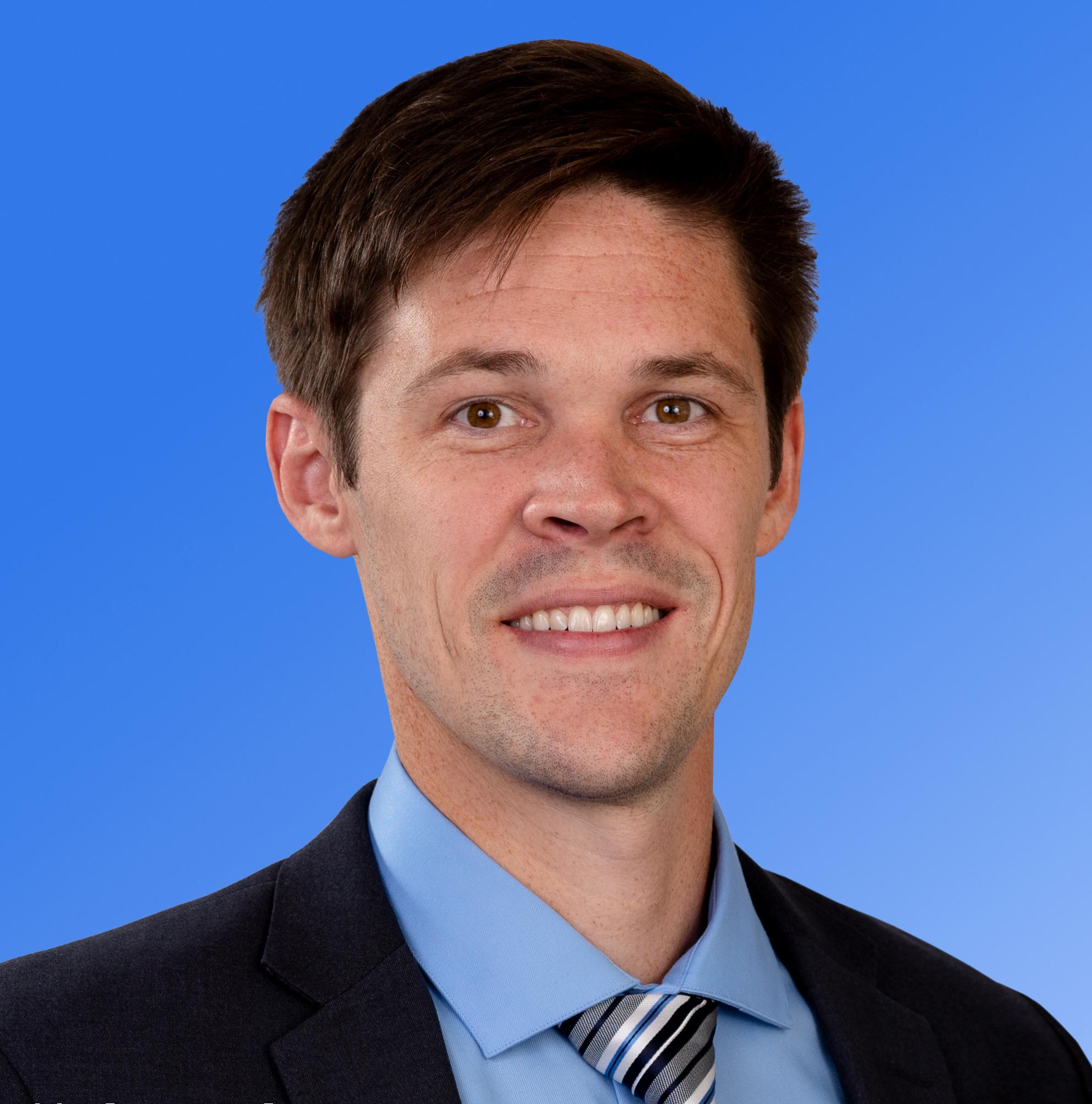
Michael Sise, a graduate of Stephen Decatur High School and Liberty University, began his career as a financial advisor in 2013. In his first five years in the business, Michael became a CERTIFIED FINANCIAL PLANNER™ (CFP®) professional, as well as achieving his Accredited Investment Fiduciary® (AIF®) and Chartered Retirement Planning Counselor® (CRPC®) designations. He worked as an adjunct professor at Salisbury University’s Perdue School of Business for two years teaching Retirement Planning, and in 2019 was named a partner at Comprehensive Financial Solutions (CFS). He is also the host of CFS’s The Financial Planning and Game Theory Podcast. He lives in Maryland with his wife, Allison, and their two daughters.
Sise says receiving the NextGen Financial Services Professional Award is a great honor for him. “It validates the late nights of studying, networking, cold calling, presenting, teaching, and client meetings,” he says. “Our business is ever-changing, and it’s important to keep up with or stay ahead of those changes. Yet ultimately, this business is all about relationships, and an advisor who can build and grow the trust with their clients will have a long and fulfilling career.” He also says the self-doubt young professionals feel can actually be an asset to them in the financial services field. “Any new career is overwhelming, but this career path absolutely requires a young person to know what they don’t know. An intelligent and determined young advisor will be more likely to cherish and capitalize on every learning opportunity they meet professionally. Complacency is always corrosive, and a committed young person in the financial services profession’s greatest advantage is their hunger to learn and grow.”
Five Things You Didn’t Know About Michael
Favorite Quote: "Give me six hours to chop down a tree, and I will spend the first four sharpening the axe." – Abraham Lincoln
Last Meal: “Surf & turf with a caesar salad, fresh bread, and a chocolate shake.”
Favorite Vacation: “A Caribbean cruise in 2014. I put on ten pounds in seven days.”
Next Designation: “The College’s Master of Science in Financial Planning (MSFP) has always appealed to me. The curriculum looks excellent.”
Last Show You Binge Watched: Cobra Kai
Andrew Tudor, CFP®, RICP®
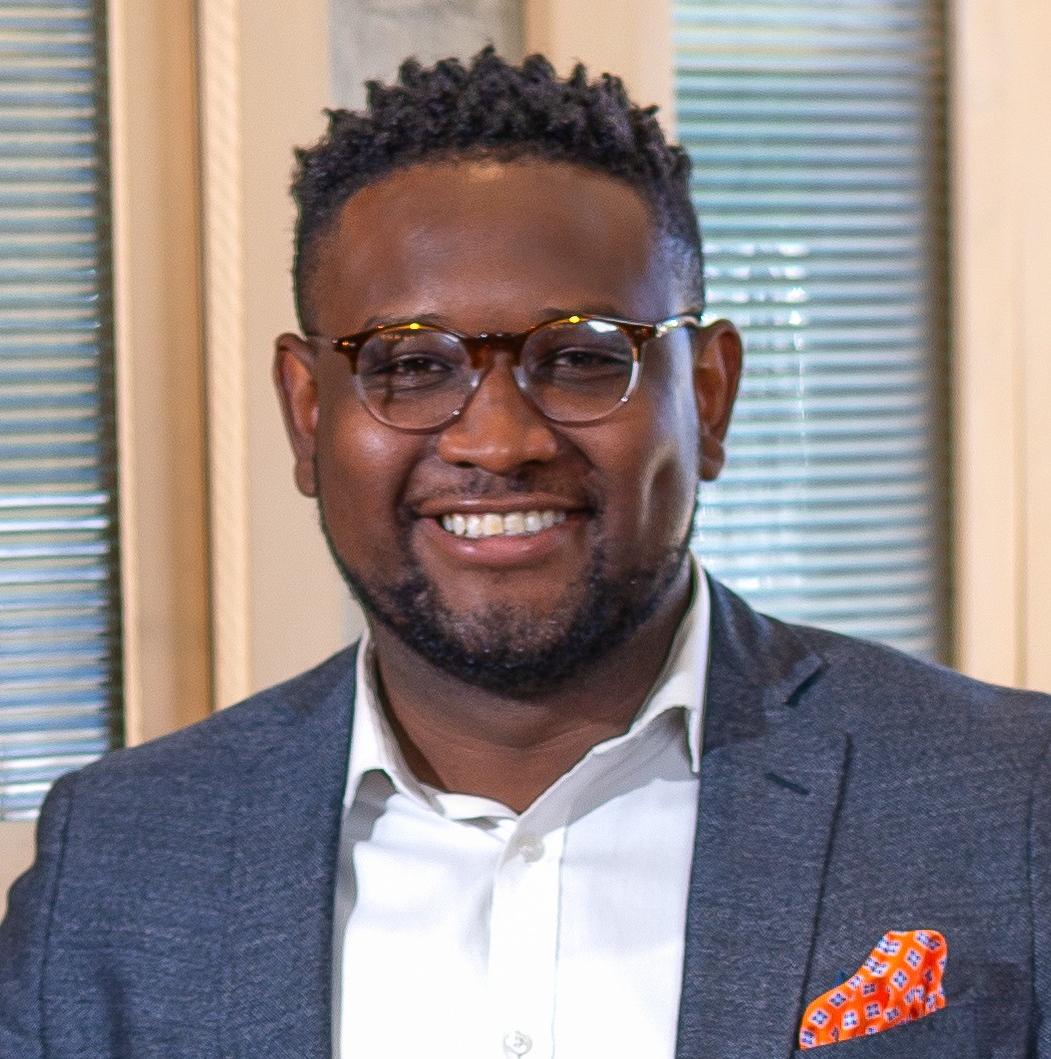
Andrew Tudor is the Founder and Chief Wealth Coach at Alchemist Wealth. There, he helps professional women and dual-income couples transform their relationship with money. His group combines financial planning and coaching to help give dynamic women clarity and confidence with their money. He says receiving the NextGen Financial Services Professional Award “means that we are successfully changing the conversation about money. Our business is about serving our community, being fully transparent, and coaching people to be more fulfilled humans. The market and now the industry is telling us that this new conversation about money matters to people.”
Tudor says young advisors enjoy many professional advantages in today’s financial services industry. “Young professionals and people of color experience financial success and money differently,” he says. “They need someone who understands their unique dreams and potential hurdles with context. That’s why our generation prefers working with younger advisors who understand the aspirations and fears of our peers.” He says younger advisors are also better equipped to lead conversations about wealth creation as well as wealth management. “I understand and can articulate the desires and fears of my peer group. We experienced the Great Recession, Housing Crises, and Cryptocurrency Boom in the same life stage,” he says. “That gives me an advantage because I’m hearing the meaning behind the goals and the fears. The most important thing is that our clients feel understood.”
Five Things You Didn’t Know About Andrew
Favorite Hobby: “Cooking. It’s my creative outlet and I love eating my creations.”
Favorite Podcast: “Revisionist History with Malcolm Gladwell. I love history and reexamining the things we hold to be true.”
Favorite Book: “The Alchemist by Paulo Coelho. It explores how life is an uncharted journey that you have to chart for yourself. You must follow your personal legend and create your uniquely satisfying future. I believe that to my core.”
Best Vacation: “Accra, Ghana, in 2019. It was the Year of Return for people of African descent. It was beautiful, insightful, and powerful. It changed my life.”
Favorite Organization: "Professionally, CHIP, NAPFA, and XY Planning Network. Personally, I-Rise Investments (my investment club), the Cincinnati Chamber of Commerce, the Leadership Center, and Alpha Phi Alpha Fraternity, Inc.”
Lauren Yamaoka, CAP®
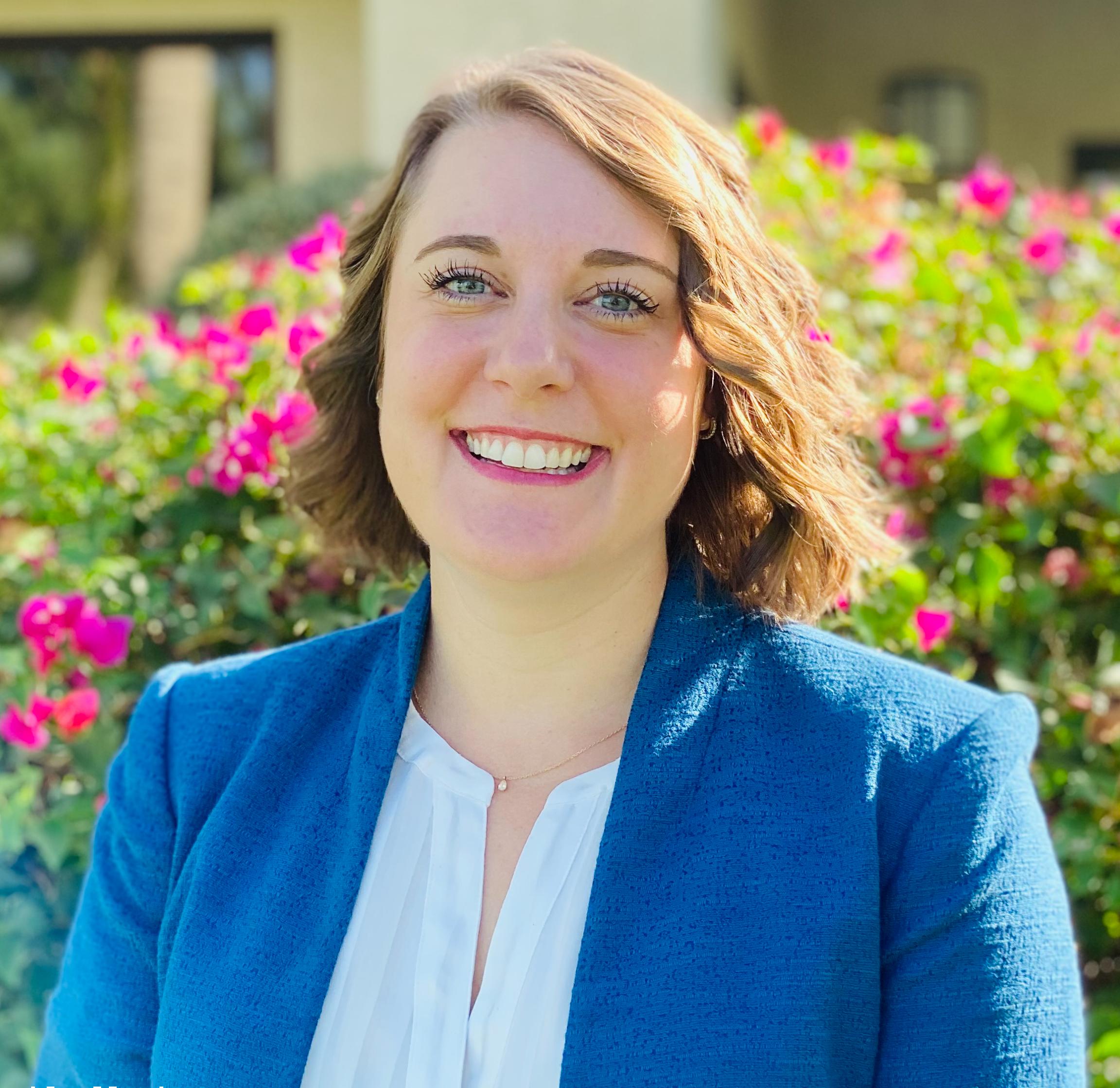
Lauren Yamaoka is a Director of Development at The Fuller Foundation, where she works to help clients and donors achieve their philanthropic goals and support Fuller Theological Seminary and its community. She earned a BA in English from Hope College and an MFA in Creative Writing from Roosevelt University. She has worked in nonprofit fundraising for nearly a decade, holding positions with Northwestern University, Southern Methodist University, and the Children’s Medical Center Foundation. “As a fundraising professional among so many traditional client-facing financial advisors, it is truly an honor to receive this award and to represent the nonprofit seat at the planning table, as we are all working together—client, advisor, and fundraiser alike—to make a positive difference in the community and world,” she says.
Early in her career, Yamaoka was a nonprofit recruiter, and she says she’s most grateful for those who took a chance on her when she decided she wanted to transition into a frontline fundraising role as a major gifts officer. “As young professionals, we have been raised to be successful in a business world that has shifted toward a focus on social responsibility, values, and impact,” she says. “For those of us in the nonprofit sector, we are in a prime position to use these skills to better articulate our organizations' impact in the community and progress toward mission fulfillment, which can in turn inspire better confidence among donors and volunteers.”
Five Things You Didn’t Know About Lauren
Favorite Hobby: “Reading! I typically read an average of one book per week and love sharing my thoughts and recommendations with others.”
Favorite Quote: "It is something to be able to paint a particular picture, or to carve a statue, and so to make a few objects beautiful; but it is far more glorious to carve and paint the very atmosphere and medium through which we look, which morally we can do. To affect the quality of the day, that is the highest of arts." —Henry David Thoreau
Best Vacation: “My husband and I visited Thailand and Vietnam in fall 2018 and fell in love with the culture, cuisine, and the people.”
Next Designation: “The Master of Science in Financial Planning (MSFP) with a concentration in legacy planning. My three CAP® courses count toward this degree!”
Last Meal: “All my favorite dishes at Gather in Chicago’s Lincoln Square neighborhood.”
Planning for Retirement: What to Do if It Comes Early
Key Takeaways
- If retirement comes earlier than you thought, smart planning is a must.
- Taking the right steps now can pay off over the long run.
- By minimizing taxes, a nest egg can last longer.

If you’re among the many older workers who may be looking at an early retirement due to the economic fallout caused by the COVID-19 pandemic, you’re not alone. From March to August of 2020, 2.9 million Americans ages 55 to 70, or about 7% of the workers in that age group, lost their jobs and left the labor force.1
Many of these individuals will be forced into early retirement, which could have severe consequences for their long-term retirement security. Early retirees lose not only wages, but also the chance to make additional contributions to their workplace retirement savings plan, and lose any future employer matching contributions they would have received. Historically low interest rates will also create significant challenges for anyone looking to generate retirement income with their savings.
Overcoming those challenges – or at least mitigating their impact – will require thoughtful execution of smart financial planning strategies. Planning for Retirement: What to Do if it Comes Early outlines nine steps to consider taking if you’ve recently been laid off or have received notice that you will be laid off, and as a result may be considering retiring earlier than planned.
Prudential served as the exclusive sponsor of the National Retirement Risk Index.
1The New School Retirement Equity Lab, “Status of Older Workers,” August 2020.
This content and information was created by a third party and not The College. The College assumes no legal liability for the accuracy, completeness, or usefulness of any such content and information and the views expressed therein do not necessarily represent the views of The College.
Research Reveals: New Ways of Approaching the Financial Services Profession

New Inroads with Black Women
In late 2021, the American College Center for Economic Empowerment and Equality finalized and released a study based on the first pillar of the Center’s Four Steps Forward initiative – to provide empowerment and educational opportunities to Black women. As Black women are often considered the gatekeepers of their families and communities, understanding their needs and situations is key to addressing the persistent issues of inequality that adversely affect the Black community as a whole.
The study's results were revealing and continue to make waves across the industry. As a result of this leading industry research, The College took home the 2022 WealthManagement.com Wealthies Award for Industry Research Provider. A second phase of research focused on Black women will begin in 2023.
Solving for Public Trust
At the same time, the American College Cary M. Maguire Center for Ethics in Financial Services was conducting a parallel study: this one focused on the general state of trust in the financial services industry. Fourteen years after the 2008 financial crisis, the research found reasons for optimism after interviewing consumers nationwide, but also areas where the industry still has a long way to go.
The results show the industry has made progress in recent years, but more still stands to be accomplished by financial professionals. Among the pressing proof points are greater transparency, simplicity, and focus on cultivating relationships that transcend transactions.
Identifying Barriers to Career Success
The American College Center for Women in Financial Services built on the theme of forming connections with important communities through their own study aimed at financial advisors rather than consumers or the general public. The research was designed to understand advisors’ perceptions of success and to help financial services companies in their efforts to recruit, support, and retain financial professionals.
Advisors were prompted to self-identify their level of success as financial professionals and explain the reasons for that success or lack thereof, as well as what they needed to feel more successful and happier in their work. The results across the board were mostly encouraging: 7 in 10 advisors identified themselves as successful by their own personal metrics or by their ability to meet their employers’ business goals.
A Drive Toward Evolution
This triad of studies clearly shows the industry must take calls for greater community involvement, communication, education, and transparency seriously. Clients and advisors want more than a strict business relationship in financial services: instead, they desire a partnership built on trust, respect, and opportunities for continued growth. As the financial planning landscape continues to shift and change, it is up to industry leaders to open new doors and walk through them.
Read this story and more in our 2022 President’s Report.
A New Resource for a Growing and Caring Community

Studies have indicated 7% of all children have some sort of developmental disability. 26% of U.S. adults are classified as living with special needs or a disability. And yet despite these growing numbers, one is still distressingly low: one-third of caregivers for those with special needs aren’t planning for their own futures right now. Without a sound financial plan to assure their security later in life and to ensure their loved ones and dependents have the care they need, caregivers are sacrificing their own quality of life for a goal that eludes their grasp. These dedicated individuals shouldn’t have to choose between themselves and their loved ones with special needs.
That’s why I’m proud to announce the launch of a new website for the American College Center for Special Needs, which will serve as a headquarters for The College’s professionals and networks to better address the needs of caregiver clients and finally help them achieve the peace of mind they deserve.
Established in 2014 by a transformative gift from MassMutual, the Center for Special Needs seeks to be the nation’s leading voice on financial planning for professionals working with the loved ones, guardians, and caregivers of those with special needs. Supported by world-class thought leadership, programming, and education focused on the underserved but rapidly growing special needs community—including The College’s own Chartered Special Needs Consultant® (ChSNC®) professional designation—the Center is uniquely positioned to deliver a massive benefit to society and these communities.
I couldn’t be more proud to share this exciting news, and I invite you to visit the new Center website as we continue to shine a light on the Center’s work and its synergy with the only financial services designation that provides comprehensive education in special needs planning. We remain steadfast in our commitment to the special needs community, caregiver clients and loved ones alike, and hope you’ll join us in making the relaunch of this Center website a success.
Meet Mickey Rosenzweig, CLU®, ChFC®, AEP®, 2021 Alumni Hall of Fame Inductee

As an alumnus of The American College of Financial Services with over four decades in financial services, as well as the founder and CEO of Rosenzweig Financial Services—the company that bears his name—Rosenzweig has been an influential supporter of The College and its students, faculty, and staff for much of that time. This year, Rosenzweig will be inducted into The College’s Alumni Hall of Fame, a select group of graduates who have made extraordinary contributions in time, talent, and treasure to The College and to the financial services industry and society as a whole. And it likely won’t be a surprise to learn that Rosenzweig has quite few stories to tell—but the story of his journey to the financial services profession might be.
“I graduated college in 1973 and was planning to go to law school,” Rosenzweig recalls. “I decided on about a week’s notice to take a ten day vacation overseas before my term started. That ten day trip became eight and a half months living in over 20 European and Middle Eastern countries, and when I came back, I realized I didn’t want to go to law school after all. I needed a new direction for my life.”
Rosenzweig credits his brother-in-law with first suggesting he consider financial planning as a potential career—something he had never before considered. “I was definitely a hippy,” he says. “A month earlier, I was living in Goa, India, with long hair and a beard and had been to Woodstock, and a month later I was walking into Penn Mutual to interview for a position as an insurance agent, clean-cut and ready to go.”
While at Penn Mutual, Rosenzweig worked under the watchful eye of Lou DiCerbo, CLU®, ChFC®: a well-known titan of the financial services industry, longtime friend of The College, and the first-ever inductee to The College’s Alumni Hall of Fame. Naturally, this seemed like the start of a successful career. Cue plot twist.
“I worked there for four and a half months, did very well, and then left, never wanting to go back.”
Oh. Okay, then.
“I told my brother-in-law I didn’t want to do insurance,” Rosenzweig says. “I just didn’t think it was for me. So he told me he was opening up a beer brewer and distributor in Brooklyn, and that when they opened a second location, I could be a partner. Four and a half years later, I was working 75-hour weeks in the beer industry and had a wife and year-old child to support. But the partnership fell through, and I was devastated.”
It was now 1979, and Rosenzweig was looking for another career change at a time most people were having great difficulty finding jobs. But he certainly wasn’t looking to go back to financial services, because—I’m wrong again, aren’t I?
“The people I had known at Penn Mutual told me to come back to financial services, and there were potential places for me both there and at MassMutual,” he said. “I had no money, there weren’t many other options on the table, and I saw the people I had worked with years before were doing well now. My father taught me to always do the best job I could wherever I worked, and to never burn a bridge. So I sat down, thought it over, and decided to go back to insurance, and to Penn Mutual. In the end, it was the people there that convinced me.”
Because of his values and work ethic, and having parted on good terms previously, Rosenzweig found DiCerbo was more than happy to hire him back and says he remains in his debt. The rest, as they say, is history. When asked why he came back to financial services after resisting for so long, Rosenzweig laughs. “I came back for the money, and you can make a lot of money in this business. I won’t apologize for that,” he says. “Having said that, I love helping other people and I love to work hard. There’s always more people to see, and my love of the profession grew from there.”
These days, Rosenzweig works with clients whose needs run the gamut from life, disability, and long-term care insurance to pension administration, employee benefits assistance, and more. “My objective was always long-term client retention and being a trusted, knowledgeable partner for them,” he says. And that’s where The American College of Financial Services came in. “Lou was my key to The College. He would always preach that applied knowledge is power in our industry, and that The College was the citadel of that knowledge. So if I wanted to sell a lot of insurance and be competitive, I needed more and better knowledge.”
Despite resisting going back to school and the time drain of returning to studies, Rosenzweig says DiCerbo’s encouragement was the push he needed to earn his Chartered Life Underwriter® (CLU®) designation, and later his Chartered Financial Consultant® (ChFC®), with The College. “I’ve met incredible people over my time here and in my different roles with The College that have helped me grow dramatically.” He lists his three primary areas of expertise as insurance planning, estate planning, and qualified planning—and credits The College with imparting much of that knowledge. “I’ve always believed in treating other people like I’d want to be treated and offering the best value and service for my fees to clients. Sharing knowledge with clients helps them make better and more informed decisions. I don’t ever tell people what they should do; I tell them what they could do, and the rest is up to them.”
Now approaching 50 years in the industry, Rosenzweig says his focus has shifted to giving back to the profession and his community. He says it hasn’t always been easy, but doing the right thing and helping others is its own reward.
“I once met an attorney who had lost his law license for something he did. He needed insurance and came to me, but I couldn’t stand working with him as a client and was glad when we parted ways,” he said. “Several years later, his wife called me out of the blue and told me he had passed away. The police wanted to do an autopsy, but she couldn’t allow it for religious reasons and wanted to know how it might affect their insurance policy. Keep in mind, this was at 4 p.m. on a Thursday and I was playing in a tennis tournament that night. I hadn’t liked him much, but I immediately called my wife and told her I wouldn’t be making it home.”
Rosenzweig says he worked through that evening and into the following morning getting in touch with detectives, medical examiners, and every life insurance contact he could find to get answers for the widow. “I went to his funeral and listened to his son deliver the eulogy, and I learned that thanks to that insurance money I’d helped them get, both his children were able to go to college,” he says. “I’ll say it again: treat others the way you’d want to be treated, and do what’s right. It’s easy to say, but hard to do.”
Rosenzweig is full of stories like this one—something that’s not hard to imagine given his professional and life experiences. “I’ve always felt it’s important to give back, whether it’s through education or charity, and not just be a taker,” he says. “On vacation in the Philippines, I saw a water carrier who would sell water to people. I paid him for all his inventory that day, which couldn’t have been more than $20, and told him to give out free drinks to everyone working at the small airport we were at. I changed his life that day. Another time, I was in Ireland and was listening to a storyteller trying to sell his tapes and books, but was getting booed by the audience. I stepped up to sell his merchandise for him, and he had to go back to his car and get the rest of it because it sold out so fast.” He chuckles. “I like to think I’m a pretty good salesperson, too.”
Over the years, Rosenzweig has been one of The College’s greatest supporters and champions. He made his voice heard in the organization serving on The College’s Board of Trustees for a nine year period, offering advice and guidance as The College navigated the shifting landscape of the financial services profession. He also showed his dedication to supporting and nurturing the growth of students and alumni like himself as President of The College’s Alumni Association, as well as expanding The College’s mission and reach through his Chairmanship of its Foundation Board. And if that wasn’t enough, he also served as Co-Chair for The College’s three-year capital campaign, raising the needed donations from friends, alumni, and sponsors to fund The College’s educational endeavors well into the future. It’s safe to say The College wouldn’t be the same without him.
Congratulations to Mickey Rosenzweig, CLU®, ChFC®, AEP® on his induction into The American College of Financial Services’ Alumni Hall of Fame!
Insurance & Risk Management Insights
CFP Certification vs CLU and ChFC Designations

The financial services industry has long relied on the Chartered Life Underwriter® (CLU®) designation as the benchmark to determine who has extensive knowledge of life insurance. The CLU® designation is issued by The American College of Financial Services. The CLU® designation is helpful when evaluating the life insurance underwriting and risk management needs of business owners and professionals, and can be an important factor in debt agreements. The CLU® designation is also instrumental in regards to life insurance law within the context of overall risk management and helping clients to address their estate planning needs.
The CLU® designation is a five-course program that studies the practical application of risk management and the ability to manage complex financial services. The program is made up of four core courses, plus one elective. In addition, candidates must pass five 100-question, 2-hour exams (one at the end of each course). Course topics include:
- Fundamentals of Insurance Planning
- Individual Life Insurance
- Life Insurance Law
- Fundamentals of Estate Planning and Planning for Business Owners and Professionals
Other course topics include financial planning, income taxation, group benefits, investments, and retirement planning.
What does the CLU® designation mean?
A CLU® designation means a financial professional has gained an in-depth understanding of the practical, legal, and ethical aspects of life insurance underwriting and can provide the best solutions to a diverse clientele facing a range of risks and financial situations.. The CLU® designation is a significant designation for U.S. securities entities, as well as the designated business owners for securities companies and securities broker-dealers.

What is the CLU® pledge?
The CLU® designation requires a pledge to uphold the highest ethical and professional standards of conduct established by The American College of Financial Services:
“I shall, in light of all conditions surrounding those I serve, which I shall make every conscientious effort to ascertain and understand, render that service which, in the same circumstances, I would apply to myself.”
In addition, maintaining the designation requires 30 hours of continuing education (CE) credit every two years.
How difficult is the CLU® designation?
The CLU® designation is usually obtained after a number of years in the insurance business and passing licensing exams. The licensing exams are considered by most to be quite difficult, with thousands of people attempting them each year. The exams are lengthy, with many hours of study time required before taking them. The credential will ensure that you are recognized as a general insurance knowledge specialist.

What are a CLU® and a ChFC®?
The ChFC® is an acronym for Chartered Financial Consultant®. This certification program is offered by The American College of Financial Services to individuals who have completed an intensive program of study in the area of financial planning. The designation is earned once the financial professional has met all requirements to be recognized as an authoritative practitioner in financial counseling and planning. The designation is also available for individuals who have met specific educational and experience guidelines.
A CLU®, on the other hand, is the designation earned by financial professionals who have studied in-depth the risks involved with certain insurance annuities and policies, such as life insurance.
A CLU® or ChFC® designation indicates that an individual has completed a comprehensive program of study that has been developed and governed by The American College of Financial Services. Although these designations are available to all qualifying candidates, they are especially popular among those who work in financial services businesses.
What is the difference between ChFC® and CFP® certification?
The designation Chartered Financial Consultant® (ChFC®) reflects that an individual has completed advanced coursework in personal financial planning and passed comprehensive exams. A CFP® professional has also completed a college degree plus met specific coursework and passed comprehensive exams.
The CFP Board of Standards sets and enforces standards for the CFP® mark in their privacy policy, and ensures that CFP® professionals are held to the highest standard of integrity, ethics, and professionalism. The CFP Board owns the CFP® mark, CERTIFIED FINANCIAL PLANNER™, and federally registered CFP® certification.
ChFC® implies that the applicant possesses expertise in various financial planning processes, similar to the CFP® certification. ChFC® is important for advisors who offer assistance with retirement planning, estate planning, wealth management, and sell life insurance, disability income, or long-term care policies that are regulated by state insurance departments.
More From The College:
See our CFP® Certification Education Program
Learn about our CLU® Program
Get the details of our ChFC® Program
Critical Research Enables Our First Step Forward

Black women's influence on their families and within their communities is undeniable. Yet, they remain an underserved demographic in the financial services industry. Our first step forward focuses on developing programs that curate the best financial knowledge relevant to Black women to grow their wealth. The more Black women know about the barriers to financial stability, savings strategies, investing, and transferring wealth, the more their families and communities can grow in financial wisdom.
To this end, I'm proud to present the Center for Economic Empowerment and Equality's inaugural research study, Black Women, Trust, and the Financial Services Industry. We surveyed 3,500 middle-income Black women across the nation to create a holistic picture of Black women's perception of financial services and money, their wants and needs, and their role as decision-makers in their households and communities.
With this groundbreaking research, we now have actionable insights that The College plans to use as we work to improve Black Americans' relationship with money and the financial services industry. The Center for Economic Empowerment and Equality is dedicated to bringing Black women into the fold, starting with showing the financial services industry the opportunities available to better connect with Black women and better demonstrate inclusivity, empathy, and understanding.
I invite you to view the research and learn what's needed to become better partners and financial allies with Black women. You, too, can help us in our mission to close the wealth gap.
WMCP® vs CFP®

The WMCP® designation is awarded to financial advisors who have successfully completed the comprehensive certification process. WMCP®s are held to standards of excellence and must adhere to a strict code of ethics. They must also demonstrate their expertise in working with high-net-worth clients in areas like income tax, estate planning, investment management, and insurance.
Financial advisors are charged with many responsibilities, including asset management, insurance, estate planning, retirement planning, wealth management, financial planning, investment, tax, fee-based advice, regulatory compliance, debt negotiation, risk management, compliance, securities trading, and much more. Stand out from your competitors and attain greater credibility, trust, and respect by earning your WMCP® designation!
How do I get a wealth management certificate?
The WMCP® is a certification for wealth managers and investment advisors who have met rigorous requirements and passed a battery of exams. The 6 to 8-month learning experience is built for financial professionals who want to understand the intricacies of the wealth management industry and serve clients with comprehensive financial strategies, knowledge, and expertise.
What certifications do wealth managers need?
In general, wealth managers will have a bachelor's degree from an accredited university in business administration, accounting, finance, economics, or a related field. They must also complete approved graduate studies (e.g., MBA) or have earned a CPA certification. Continuing education is strongly recommended to maintain currency of knowledge—most states require their CPAs to earn 30 hours of CE credit per year.

What is a CPWA certification?
The Certified Private Wealth Advisor (CPWA) is a U.S.-specific certification that aims to set a minimum standard and best practices for professional wealth managers who work with high-net-worth clients in income tax, estate planning, investment management, and insurance.
To earn a CPWA designation, applicants must hold a bachelor's degree from an accredited institution and have one of the following designations: CIMA®, CIMC, CFA, ChFC®, or a CPA license. In addition, applicants must have an acceptable record according to the Investments & Wealth Institute’s Admissions Committee. Lastly, applicants need at least five years of experience in the financial services field.
What certifications do you need to be a wealth manager?
A wealth manager not only manages a client’s money, but also acts as a financial advisor who helps a client make the right choices in investing, saving, and planning for retirement.
The first step along the path to becoming a certified wealth manager is usually becoming a CFP® professional through the Certified Financial Planner Board of Standards, Inc. The CFP® certification is the most respected personal financial planning accreditation in the world. It has been established to provide the public with the assurance that those who are certified are indeed qualified to provide objective financial planning advice.
In general, in order to work as a wealth manager, you'll need at least a bachelor's degree.In some places, you'll also need to become a Certified Public Accountant (CPA) or Chartered Financial Analyst (CFA), which requires additional education and work experience.
What is certified wealth management?
Wealth management is an umbrella term for financial advice to high-net-worth clients, including investment planning and portfolio management. As professionals investing on behalf of their clients, a wealth manager’s goal is to help maximize the growth and preservation of clients’ assets over time.
Certified wealth management professionals have completed a set of educational requirements and achieved a status that validates their expertise in the field. Some examples include the CFP® certification, Chartered Financial Analyst (CFA), Wealth Management Certified Professional® (WMCP®), or American Institute of Wealth Management Analyst (AIA). As with most occupations, the more education you have, the more expertise you possess, and the more successful you can become.
Which is better: WMCP® or CFP® certification?
The WMCP® designation is a specialized, professional-level designation for wealth managers. It establishes the wealth manager as an expert in his or her field and provides a foundation for financial success.
The CFP® certification is the most recognized financial planning designation in North America. To earn this prestigious professional designation, knowledge and skills must be demonstrated through a comprehensive exam and adherence to stringent ethical standards.
The CFP® certification is recognized as the “gold standard” of financial planning designations. A CFP® professional will usually manage his or her own business, whereas a WMCP® practitioner may be an employee of a firm that manages money.
Invest in your career with a professional designation.
To continue providing value to your clients, you have to go well beyond the usual investment advice. Through the Wealth Management Certified Professional® (WMCP®) designation program, you can master behavioral finance and learn the advanced strategies needed to create efficient, individualized portfolios that are attuned to each of your client’s unique needs and values. Offer your clients more.
More From The College:
See our CFP® Certification Education Program.
Get the details of our WMCP® Program.